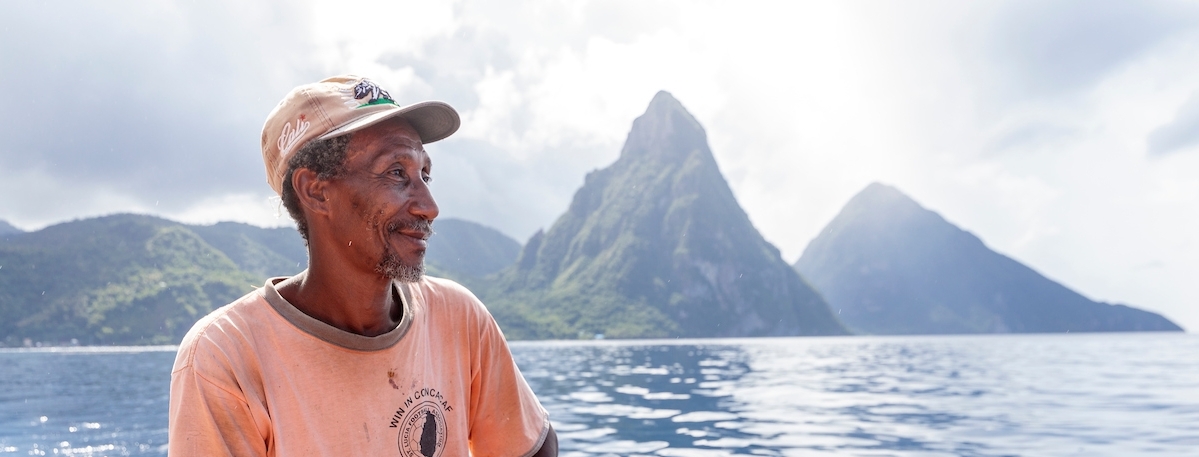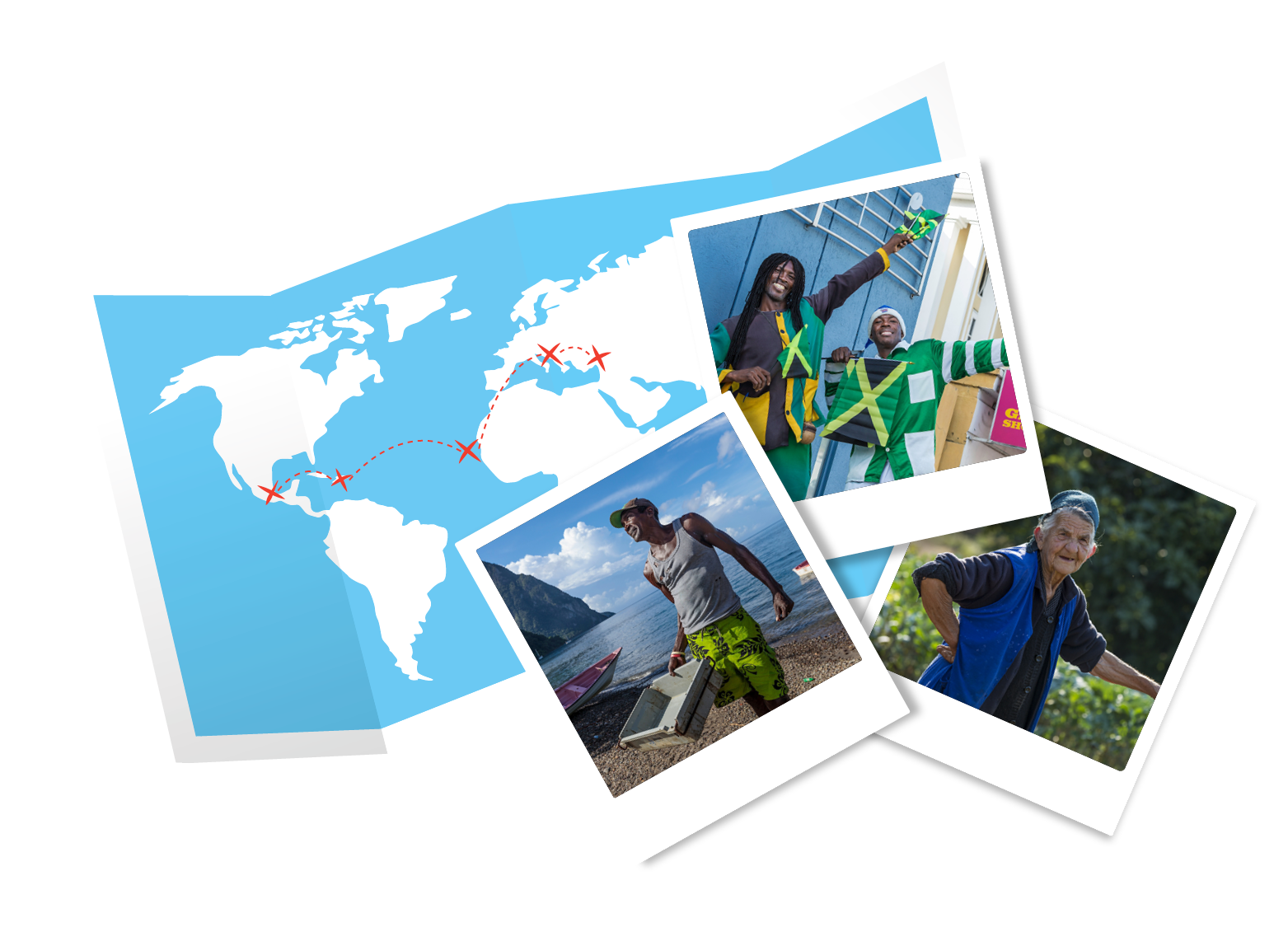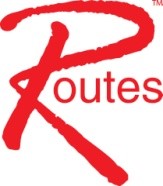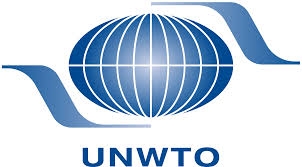
Destinations are not just for tourists, first and foremost they are for residents. This year, our annual review focuses on how we give local communities a voice.

We developed 16 sustainable tourism initiatives, across 10 destinations around the world:
research projects to understand the impacts of tourism and how to improve them.
destination projects that put this knowledge into action, directly increasing local benefits and improving environmental impacts.
training initiatives focused on enabling tourism staff to spread the benefits of a sustainable approach.

We joined with World Routes, the airline development forum, as their official charity partner for World Routes 2017, curating a series of sustainable tourism presentations for this prestigious event.

We launched our “Warm Welcome” campaign in Montego Bay, Jamaica, at the Global Sustainable Tourism Conference run by the UN’s World Tourism Organisation. The campaign, which encourages tourists to explore and spend money in the local area, involves Jamaica’s tourism development agency (TPDCo), hotels, front line staff, local police, and tourists.
| Destination | Project Name | Delivered in partnership with | Type |
|---|---|---|---|
| Cabo Verde, Programme in partnership with TUI Care Foundation | Greener Hotels | RHP | Environmental Protection |
| Better Excursions | Project Biodiversity Thinking Tourism | Local Product Development | |
| Croatia, Programme in partnership with TUI Care Foundation | Benefiting from New Tourism | Živogošće and Igrane Tourism Boards Sensimar Makarska Hotel Sensimar Adriatic Beach Hotel | Local Product Development |
| Jamaica, Programme in partnership with TUI Care Foundation | Out and About in Montego Bay | Tourism Product Development Company | Local Product Development |
| Crafting Livelihoods | Local Product Development | ||
| Sustainable Excursions | Research | ||
| Mexico | Sustainable Excusions | Sustentur Centinelas del Agua Razonatur | Research |
| Mauritius and Saint Lucia, Programme sponsored by BMU Germany | Transforming Tourism Value Chains | UN Environment WRAP UNEP-DTU partnership Ministry of Tourism Mauritius Department of Tourism Saint Lucia | Environmental Protection |
| Multi-destination, Project sponsored by ANVR | Leading the way | ANVR | Training |
| Multi-destination | A Roadmap to Destination Success | Caribbean Tourism Organisation | Training |
| Multi-destination | Cultural Assets Research Methodology | Research | |
| Saint Lucia | Lionfish on the Menu | CLEAR Caribbean Department of Fisheries, Saint Lucia | Environment Protection and Local Product Development |
| Saint Lucia and Sardinia | Destination Risk Profiling | TUI Group | Research |
| Tenerife, Project funded by Tenerife Tourism Council | Finding the Optimum Tourism Mix | Tenerife Tourism Council | Research |
| South Africa | Adventure Tourism for Conservation and Development | CapeNature | Research |
| Turkey | Blue Wave | Municipality of Fethiye Chamber of Shipping, Fethiye Branch TURMEPA, Fethiye Branch D-Marin Göcek | Environmental protection |
In 2017 our fundraising strategy and activities were focused on increasing the diversification of our income sources, with a move towards growing our grant income. As a result, our grants increased to 16% of our income, growing from less than 1% in 2016. The majority of our funding, however, continues to come from our partner travel companies and their customers; support that remains invaluable to us. Whilst against 2016 our income decreased by 5%, this reduction was anticipated and we closed the year 4% higher than we had originally forecast. Our aim is to build on the success of 2017, as we continue with our diversification strategy throughout 2018.
Our expenditure grew by 15% in 2017, with a planned draw down of our reserves. This increase was used to scale up our activities, with a range of new activities initiated. This included commencing work in new destinations such as Mauritius and Tenerife, as well as undertaking a series of research and sustainable practice activities. We continue to strive to keep our governance and support costs low to ensure that the majority of the funds raised are spent directly on our core activities.
Research and impact assessment in tourism destinations – A vital part of our work, revealing tourism’s specific impacts and informing the creation of initiatives to address them. This section also includes scoping and pilot projects in destinations.
Programme implementation – Applying the findings of both our research and past projects to demonstrate and foster more sustainable practices in destination.
Sustainable practice and knowledge sharing – Including communications initiatives that support delivery of projects, and the creation of tools and resources to help more tourism businesses improve their practices.
Thank you to our partners and supporters
As a registered charity, we depend on your financial contribution.
Our fundraising partners
Companies and organisations that have provided funds to support our charitable aims.
TUI Care Foundation
BookDifferent
Caribtours
Classic Collection Holidays
Co-operative Energy
ECEAT (European Centre for Eco and Agro Tourism)
Ffestiniog Travel
Holiday Extras
incognito® Anti-Mosquito
I love Eco Hotels
Midcounties Cooperative Travel
Open Africa
Sunvil International
Travel Counsellors
Travel Matters
Trivago
UN Environment
Villa Centre Holidays
Virgin Holidays
Waterloo Foundation
We Are Travel
Western Cape Government, South Africa
In-kind support
Organisations that have donated gifts in-kind, including transportation, accommodation, event space, and professional skills.
ABTA
Alesta Yachting
ANVR
Belcekiz Beach Hotel
Caribbean Tourism Organisation
Chamber of Shipping
Chris Willan Photography
CLEAR Caribbean
D Marin
Department of Fisheries, Saint Lucia
Euromonitor
FETAV
Four Communications
Harvard, Megan Epler Wood
I Love Eco Hotels
IIPT
incognito® Anti-Mosquito
MBCCI
Midcounties Cooperative
Oasis Atlantico Group
Pro2col Ltd
Routes Europe
Sensimar Adriatic Beach
Sensimar Makarska
Softext
Trivago
Trivago (Melia Dusseldorf)
TTG
TUI
TURMEPA
UBM (UK) Ltd “Routes”
University of Limerick
WTF Conference
WTF Conference (Hotel Schweizerhof)
Zivogosce Tourist Board
Project partners
Organisations that have worked with us to support our destination projects. This may include contributing their time and resources,
as well as adapting working practices to support the programme aims
ACVAI, Cabo Verde
ANVR
APP- Aguas de Ponta Preta
Aprotur, Cabo Verde
Barracuda Tours, Cabo Verde
CapeNature
Caribbean Tourism Organisation
Câmara de Turismo de Cabo Verde
Camara Municipal do Sal
CEFP
Centinelas del Agua, Mexico
Chamber of Shipping, Fethiye
CLEAR Caribbean
Destination Council, Sal
D Marin Gocek, Turkey
Department of Fisheries, Saint Lucia
Dunas de Sal
ELECTRA
GUIANTUR
Grand Baris Boat, Turkey
Hotel Melia – Tortuga
Igrane Tourism Board, Croatia
Kryol Operator, Cabo Verde
Melia Hotels International
Ministry of Economy, Cabo Verde
Ministry of Environment, Cabo Verde
Ministry of Tourism, Cabo Verde
Ministry of Tourism, Saint Lucia
Ministry of Tourism, Mauritius
Montego Bay Chamber of Commerce and Industry
Morabeza Hotel, Cabo Verde
Morabitur, Cabo Verde
Municipality of Fethiye, Turkey
Murdeira Village Resort, Cabo Verde
New Vira Marine School, Turkey
Oasis Group – Belorizonte Hotel
Odjo d’Agua Hotel, Cabo Verde
On Travel Solutions
Preverisk, Cabo Verde
Project Biodiversity, Cabo Verde
Razonatur, Mexico
RHP
RIU Garopa e Funana Hotel, Cabo Verde
Royal Horizons, Cabo Verde
SDTIBM, Cabo Verde
Sensimar Adriatic Beach Hotel, Croatia
Sensimar Makarska Hotel, Croatia
SLHTA (Saint Lucia Hotel and Tourism Association)
Sustentur, Mexico
Tenerife Tourism Council
Thinking Tourism
Tourism Product Development Co. Jamaica
TUI Group
Turkish Chamber of Shipping, Fethiye branch
TURMEPA, Fethiye branch
UN Environment
UNEP DTU Partnership
Vila Verde, Cabo Verde
Vista Verde, Cabo Verde
WRAP
Živogošće Tourism Board, Croatia